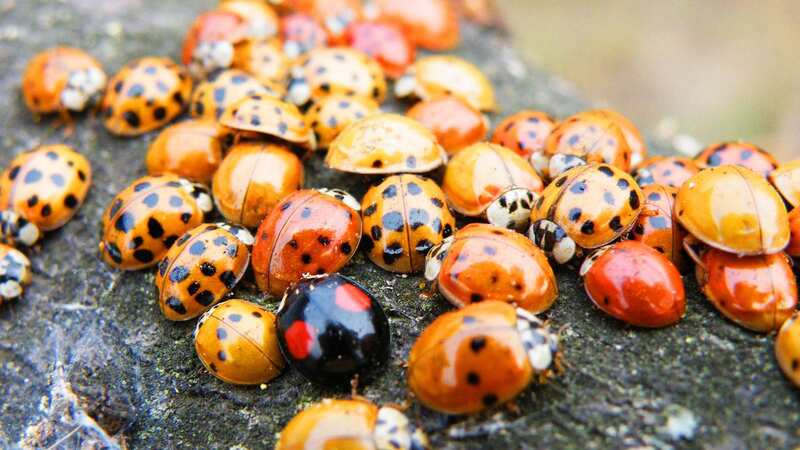Insect expert explains why ladybirds are swarming your house this time of year

The UK has been having an unusually warm October. And while it means we've been able to sit out and enjoy the sun, other species are also enjoying the warmth. People have been seeing an increase in ladybirds, with homeowners, in particular, saying their homes are being 'invaded' by the colourful insects.
Earlier this month, on October 7, a woman woke up to find 'thousands' of ladybirds had forced their way into her home in Ickleton, Cambridgeshire, leaving the woman with no choice, she said, but to flee. While the invasion was shocking, it's not out of the ordinary to see more ladybirds during this time of year.
According to NottinghamshireLive, the prolonged warm weather is a factor in the rise in ladybird populations. The insects often flee indoors as soon as it becomes colder in an effort to locate a warm place to hibernate over the winter.
By this time of year, the hibernation phase would typically be over but due to the persistently warm temperatures, ladybirds are still enjoying their extra time to find the right sleeping place for winter. "They're not here to take over and it's likely that they'll be gone as quickly as they arrived," ecologist Dean Wilson from Horticulture.co.uk said. "I wouldn't expect the 'swarms' to stay for longer than one week at the most."
The ecologist continued by saying that ladybirds are an essential component of the ecosystem because they help to protect crops by consuming insects that feed on plants. Additionally, he clarified that neither humans nor their cherished pets are in any way endangered by the red and black insects. However, Mr Wilson advised people to leave the bug alone if they discover it inside their home.
 'I don't want children staying up late at weekends - I really need adult time'
'I don't want children staying up late at weekends - I really need adult time'
Dean suggested that people appreciate the numerous benefits and aesthetic value that these insects bring to backyards across the country. That being said, lemongrass, amphor, and peppermint can be effective in preventing ladybird infestations if you think yours is serious.
This advice comes after two people have claimed they spotted bedbugs on public transport in London and Manchester, as Brits feel concerned about a potential infestation as has happened in France. While ladybirds are safe, bedbugs feed on blood, usually at night. Their bites can result in a number of health impacts including skin rashes, psychological effects, and allergic symptoms.
Read more similar news:
Comments:
comments powered by Disqus

































